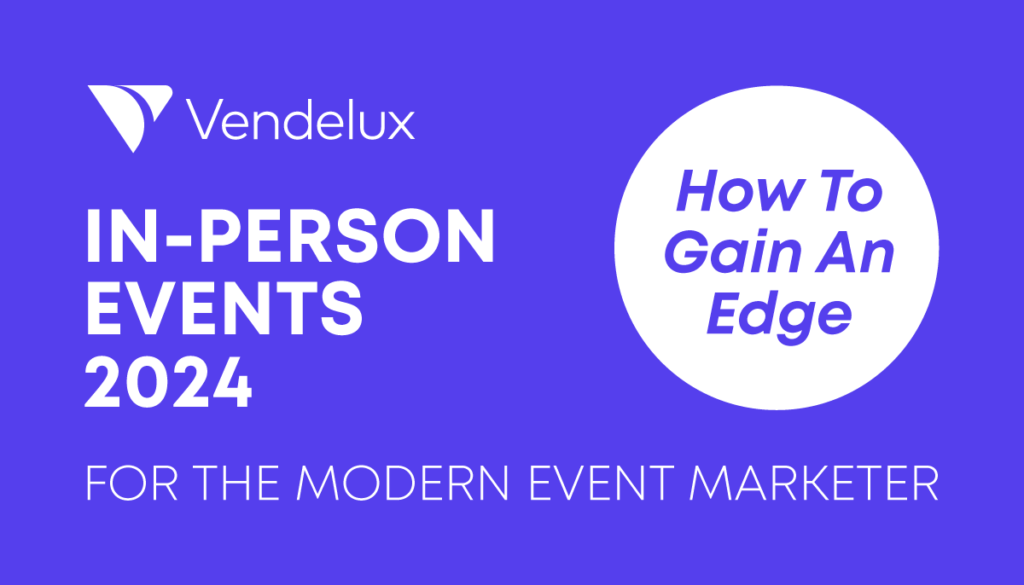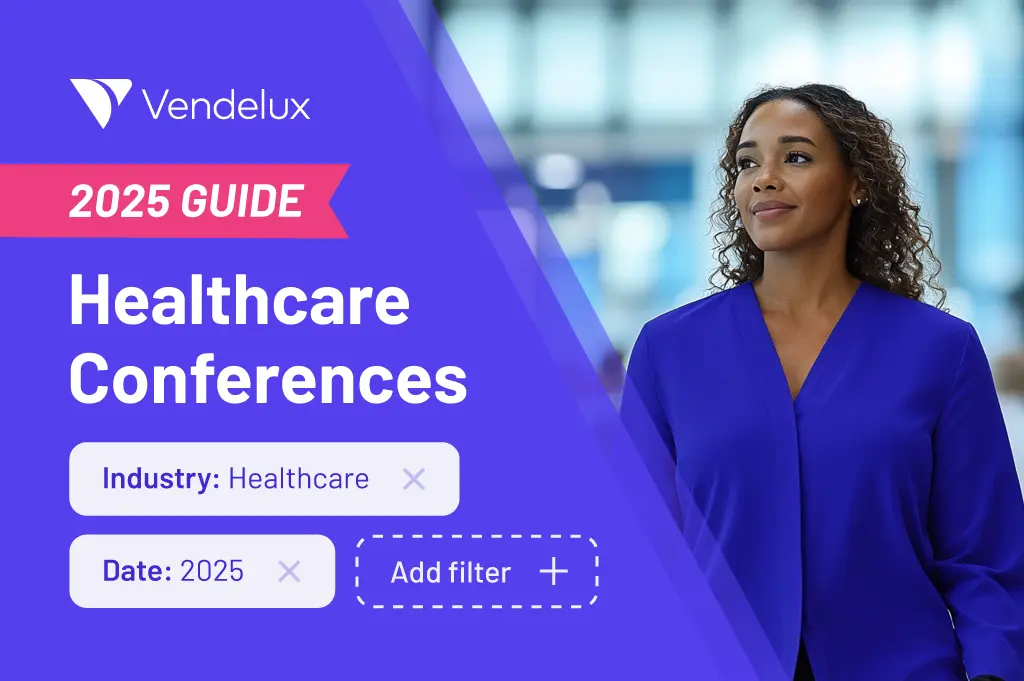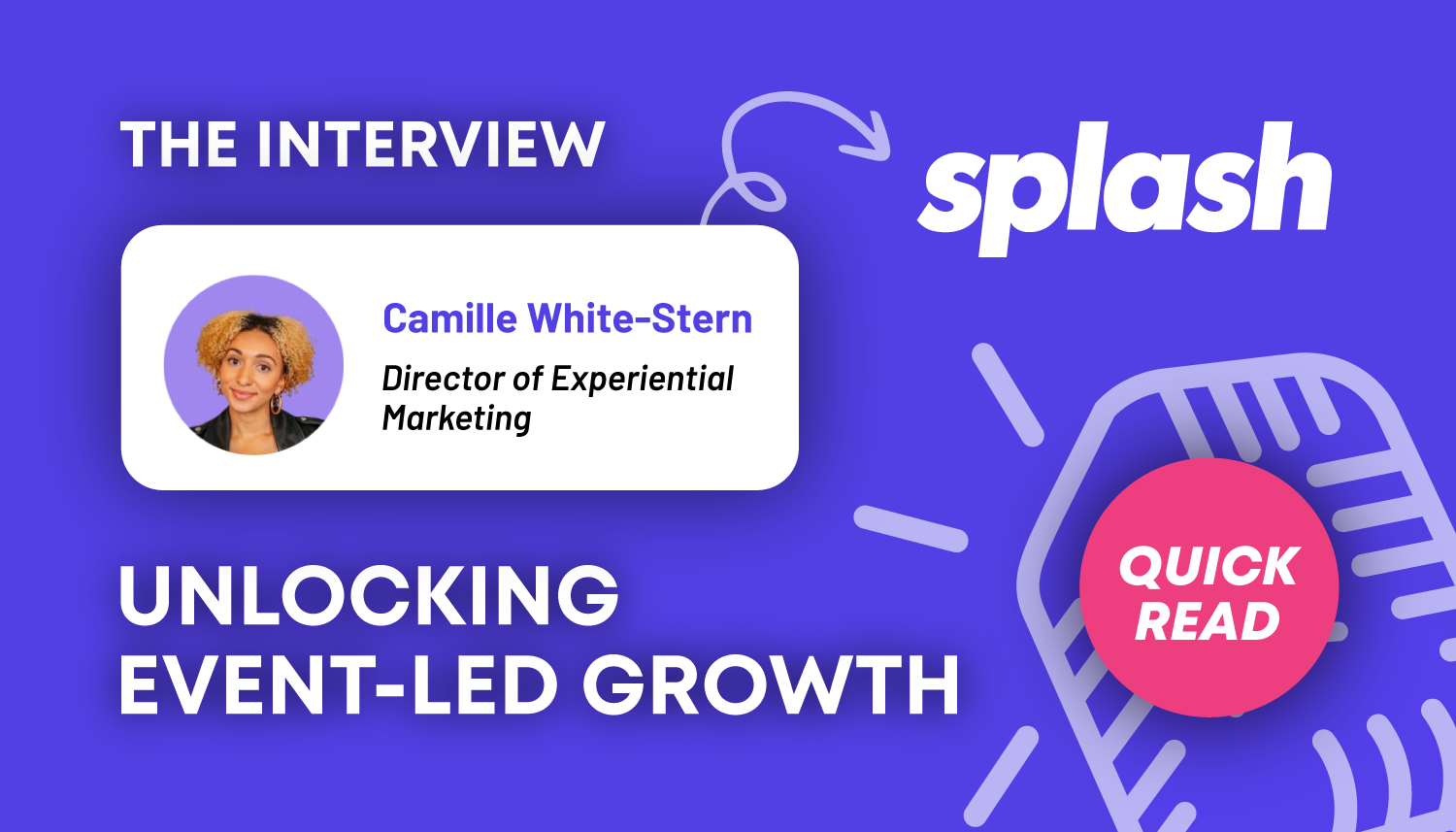The event industry hit a snag during Covid-19, but the resurgence of in-person events brings new event marketing opportunities that can deliver unprecedented opportunities and results to those who are quick to pounce on them.
The COVID-19 pandemic significantly disrupted the event industry, halting live events, face-to-face networking, and on-site exhibitions due to lockdowns, travel restrictions, and social distancing measures. The very essence of events, which is to bring people together in one place, was challenged.
Industry Resilience and Revival
Three years on from the initial lockdowns, event planners, having demonstrated remarkable flexibility and resilience, are witnessing a revival of the industry. This resurgence raises questions about the future trajectory of the event industry – will it experience a rapid boom, a steady increase, or a gradual recovery?
What’s certain is that the sector is regaining momentum, with a noticeable decrease in cancellations and a rise in attendance and engagement, reinstating in-person events as a key component of marketing strategies.
Adapting to New Norms
The landscape, however, has evolved since 2019. Event planners are now adapting to new norms, including hybrid events that blend in-person event ideas and virtual event elements, and leveraging new technologies prompted by pandemic-induced changes in work environments.
Despite these changes, the fundamental need for in-person interaction remains unchanged. Virtual events, while here to stay, have not replaced the need for face-to-face interactions but have emphasized the importance of selective participation in events.
Budget Reallocation and Marketing Focus
Pandemic-induced budget reallocations, which shifted funds from travel and events to digital transformation and remote work adaptations, are now seeing a reversal.
As budgets return to event marketing, there is an increased focus on the quantitative and qualitative analysis of events to maximize return on investment (ROI) and ensure the effectiveness of event marketing strategies.
The Future of In-Person Events
In-person events remain an integral part of marketing mixes, offering unique opportunities for businesses to connect directly with their target audience and gather valuable insights.
With this renewed emphasis, event organizers are scrutinizing which in-person events, whether networking events, trade shows, or specific event formats, will yield the best outcomes and contribute most effectively to overall marketing goals.
The Importance of In-Person Events
Building Stronger, Personal Connections
In the digital age, in-person events stand out for their ability to foster deeper, more personal connections. Unlike virtual events, where interactions can feel distant and impersonal, in-person events allow for direct, face-to-face engagement. This environment is conducive to building trust, understanding through body language, and forming stronger business relationships. It’s a setting where handshakes, eye contact, and spontaneous conversations create bonds that are hard to replicate online.
Enhancing Sensory Experiences
In-person events offer a multisensory experience that goes beyond what virtual platforms can provide. Attendees have the opportunity to interact with products, experience live demonstrations, and feel the energy of the environment. This immersive experience can leave a lasting impression, making these events especially valuable in sectors where tactile and visual interactions play a crucial role.
Economic Contributions and Local Benefits
Hosting in-person events significantly boosts local economies. They drive demand in sectors such as hospitality, transportation, and local commerce. These events not only contribute to the event industry’s economic health but also support the growth of local businesses.
By choosing diverse locations, event organizers can enhance the experience for attendees, combining professional objectives with the exploration of new cultures and places.
Creating Unique Networking Opportunities
In-person events are unrivaled when it comes to networking. They provide a platform for attendees to engage with peers, industry leaders, and potential clients in a more relaxed and spontaneous setting. These interactions often lead to fruitful business collaborations and are key to expanding professional networks.
Leveraging Event Technology
Incorporating event technology, such as mobile event apps and event management software, can greatly enhance the in-person event experience. These tools streamline processes like check-in, badge printing, and agenda management, making the event more enjoyable for both organizers and attendees. They also provide valuable data collection opportunities, helping to measure event ROI and attendee engagement.
Adapting to Hybrid Event Formats
While the focus is on in-person events, it’s essential to acknowledge the role of hybrid event formats. These events combine physical and virtual elements, catering to both in-person and virtual attendees. This approach broadens the reach of the event and provides flexibility, ensuring that more people can participate regardless of their location or circumstances.
Personal Development and Knowledge Gain
Attending in-person events can be a significant part of one’s personal and professional development. These events often feature speakers who are experts in their fields, providing valuable insights and knowledge. Attendees can gain firsthand information and learn about the latest trends and innovations relevant to their industry.
Creating Memorable Event Experiences
The key to a successful in-person event lies in creating an unforgettable experience for attendees. This involves careful event planning, management, and execution. From selecting the right venue to crafting an engaging event agenda, every aspect contributes to the overall experience of the attendees.
Focusing on Face-to-Face Interaction
In a world where digital communication is prevalent, in-person events remind us of the value of face-to-face interactions. These interactions are more authentic and can lead to more substantial and meaningful business relationships.
Enhancing Brand Awareness and Visibility
In-person events provide an excellent opportunity for businesses to increase brand awareness and visibility. Participating in trade shows, hosting product launches, or being involved in industry-specific events can place a brand in front of its target audience, allowing for direct engagement and promotion.
Addressing the Challenges of Event Management
Organizing in-person events comes with its set of challenges, from logistical considerations to ensuring attendee satisfaction. Effective event management involves addressing these challenges head-on, using innovative solutions, and ensuring that every aspect of the event aligns with the overall goals.
What are the Challenges of In-Person Events?
Logistical Complexity
Organizing in-person events involves a myriad of logistical challenges. Securing appropriate venues that align with the event’s scale and purpose is just the beginning. Coordinating travel arrangements, accommodations, and catering requires meticulous planning and execution.
This complexity escalates for events with international attendees or those held in multiple locations. Handling the logistics of transportation, managing check-in processes, and ensuring that all equipment and materials are in place are key aspects of event management that demand attention to detail and extensive coordination.
Health and Safety Concerns
In the post-COVID era, health and safety are paramount. Event planners must implement measures such as social distancing, enhanced sanitation, health screenings, and possibly even vaccine or testing requirements. Adapting to these health protocols adds layers of complexity to event planning and can impact the overall event experience. Maintaining these standards without compromising the event’s objectives is a delicate balance that requires careful planning and execution.
Financial Implications
The financial burden of in-person events can be significant for both organizers and attendees. For organizers, the costs include venue rental, technology and equipment, staffing, marketing, and additional expenses like insurance and health safety measures. Attendees face expenses related to travel, accommodation, and registration fees. This financial aspect can limit the accessibility of events, particularly for individuals or smaller entities with limited budgets.
Environmental Impact
In-person events can have a substantial environmental footprint, primarily due to travel and the resources used at event venues. There is an increasing push towards sustainability in event planning, which involves reducing waste, opting for eco-friendly materials, and minimizing the carbon footprint associated with travel and venue operations.
Implementing these green practices is not only beneficial for the environment but also resonates with a growing segment of environmentally conscious attendees and companies.
Balancing Virtual and Physical Event Elements
With the rise of hybrid events, balancing virtual and physical elements has become a challenge. Ensuring that both in-person and online participants have a seamless and engaging experience requires sophisticated event technology solutions.
This often involves using event apps, live streaming, virtual networking platforms, and digital engagement tools to create a cohesive experience for all attendees, regardless of their mode of participation.
Catering to Diverse Attendee Needs
In-person events must cater to a diverse range of attendee preferences and needs. This includes accommodating different learning styles, physical abilities, dietary restrictions, and cultural sensitivities. Creating an inclusive environment where all attendees feel valued and engaged is crucial for the success of the event.
Post-Event Follow-Up and Data Collection
After the event, collecting and analyzing data to assess the event’s success and areas for improvement is vital. This involves gathering feedback from attendees, monitoring engagement levels, and evaluating the ROI of the event. Effective post-event follow-up can provide valuable insights for future event planning.
Ensuring Attendee Engagement
Engaging attendees in a physical setting requires different strategies compared to virtual events. This includes interactive sessions, networking opportunities, and unique event activities that encourage participation and connection among attendees.
Keeping attendees engaged and ensuring they gain valuable knowledge and experiences is a key aspect of successful event management.
How to Choose A Successful In-Person Event
When deciding to attend an in-person event, several factors should be considered to ensure that the event aligns with personal and professional goals.
Firstly, the relevance of the event to one’s industry, interests, or professional development is crucial. Events that align well with an individual’s or company’s objectives are more likely to offer valuable insights and networking opportunities.
The quality and diversity of the speakers and the agenda are also key considerations. Events featuring renowned experts or covering a wide range of relevant topics can provide significant learning and networking opportunities.
Additionally, examining the attendee list can offer insights into the networking potential and the types of connections that can be made.
The logistical aspects, such as location, duration, and cost, are also important. Events that are conveniently located and reasonably priced offer better accessibility and value for money. It’s also beneficial to consider the event’s format and whether it includes interactive sessions, workshops, or networking opportunities that meet specific needs.
Lastly, it’s essential to consider the health and safety measures implemented by the organizers, especially in the current climate. Events that prioritize attendee well-being and adhere to health guidelines demonstrate a commitment to safety and can provide a more comfortable and secure environment for participants.
While in-person events present unique challenges, they also offer invaluable opportunities for personal interaction, networking, and professional growth. By carefully considering these aspects, individuals and businesses can maximize the benefits of attending these events.
Event marketers need to be smarter with their money
Given the growing revival of event marketing, companies are now starting to plan their event marketing strategies for next year. 81% of brands believe their event budgets will match or exceed their pre-pandemic budget. This means that CMOs are receiving new budget allocations of which event marketing will be exclaiming for a larger cut of the year´s marketing budget.
Budgets are not allocated gratuitously, and event marketers will need to justify investments and expenses with results. The premise is clear, people want to go to in-person events, but marketing teams need to optimize their planning if they want their events to be successful.
It isn’t just the numbers that count. Today, quality is superseding quantity when it comes to event attendance, and exhibitors are relishing the opportunity of spending more time with quality prospects than merely counting the numbers of attendees.
So, how can event marketers be smarter with their money to drive home positive ROIs and meet qualitative objectives at a time where attendances may be lower than in the past, but the opportunities to connect are very much open? As with many things, technology can provide the solution.
Leverage technology to choose the best events for your business
Technology like Vendelux’s can help event marketers find events that will deliver the best results to their business and skip the ones that are less likely to provide a substantial ROI. How is this done? With event intelligence.
Event marketers can source the best events and attendees that are most likely to deliver their desired ROI. That way, planners reduce the risk of investing money into researching, planning and attending events, only to find that hardly any prospects attend and that the investment is ultimately a dud. Event intelligence removes the guessing element in choosing the right event for your business.
B2B marketing strategies are ultimately focused on building leads, and marketers must try to discover the most they can about their target customers to reach out to them. This is easier said than done, as the right information is not always easily accessible, hence the importance of meeting this ideal customer face-to-face, as it is one of the best ways to generate more leads.
Event marketers must take a data-driven approach to event-based marketing. This passes by picking the right events to attend or sponsor and to show the ROI, as this will help unlock additional budgets for the following year. Data-driven event marketing starts by calculating how many prospects make an event worth attending.
This process may have been arduous in the past, but today it doesn’t even require spreadsheets or manual work as solutions like Vendelux can automate the whole process.
There are multiple opportunities – just find the right events and the right audience
Embracing the Turn of the Tide in 2024
The year 2024 marks a significant turning point for the event industry, with a renewed focus on in-person events and the integration of hybrid event formats. Event planners and organizers are gearing up to host in-person events, ranging from large-scale trade shows to intimate in-person meetings, all designed to engage attendees and foster face-to-face interactions.
The full resurgence of physical events presents a unique opportunity for event professionals to innovate and create successful event experiences that meet the evolving needs of their target audience.
Leveraging Technology in Event Management
In this dynamic landscape, the role of technology, particularly a mobile event app and event tech, is more critical than ever. These tools are revolutionizing event management, offering solutions for everything from event registration to data collection.
For event organizers, leveraging these technologies means being able to deliver more engaging and successful in-person events, ensuring high levels of attendee engagement and valuable face-to-face interactions.
The Continued Relevance of Virtual Events
Virtual events continue to play a significant role, offering an alternative for those unable to attend an in person event venue. The rise of virtual and hybrid events has broadened the scope of what’s possible, allowing event attendees to participate from anywhere in the world.
This shift has also opened doors for innovative event formats and activities that cater to both in-person and virtual attendees, enhancing the overall event experience.
Navigating Hybrid Event Complexities with Technology
The emphasis on hybrid event formats has led to a greater need for effective event technology solutions. These tools not only streamline the event setup but also ensure that all attendees, whether in person or online, have a seamless experience.
From check-in processes to multiple sessions catering to different audiences, the use of event apps and tech is essential in managing the complexities of hybrid events.
Crafting Success with the Right Venue and Agenda
For businesses and event professionals, the key to success in 2024 lies in selecting the right in-person event venues, designing event agendas that resonate with the audience, and employing effective strategies for audience engagement.
Whether it’s through networking events, trade fairs, or specific event content, the goal is to create events that not only meet the event goals but also provide valuable insights and networking opportunities.
In-Person Event Industries and Directories on Vendelux
Vendelux provides an extensive array of directories categorizing in-person events across various industries. These directories are designed to help professionals find events that align with their specific interests and industry needs.
Here’s an overview of the directories available on Vendelux, showcasing the diversity of events in different sectors:
Technology Events
These events focus on general technological advancements and innovations, attracting a wide range of professionals from various tech sectors. They are ideal for staying updated with overall tech trends and networking with a broad tech audience.
AI Events
Artificial Intelligence (AI) events delve into the latest developments in AI technology, machine learning, and related fields. They are crucial for professionals working in or interested in the rapidly evolving world of AI.
Fintech Events
Focusing on financial technology, these events cater to professionals in banking, investment, and digital finance, offering insights into the latest trends and innovations in the fintech sector.
Marketing Events
These gatherings are tailored for marketing professionals, covering topics like digital marketing, brand strategy, and consumer behavior. They provide excellent opportunities for learning new marketing tactics and networking.
Cybersecurity Events
Targeted towards IT professionals and security experts, these events discuss the latest in cybersecurity threats and solutions, crucial for businesses in safeguarding their digital assets.
Ecommerce Events
These events focus on the evolving world of online retail, discussing topics like online shopping trends, digital customer experience, and e-commerce technologies.
Women’s Events
These gatherings are dedicated to empowering women professionals across various industries, offering networking opportunities, discussions on gender equality in the workplace, and leadership development.
HR Events
Human Resources professionals benefit from these events, which cover the latest trends in talent management, employee engagement, and organizational culture.
Leadership Events
Aimed at business leaders and managers, these events focus on leadership strategies, team management, and organizational development.
Education Events
These events cater to educators and academic professionals, discussing the latest trends in teaching methods, educational technology, and curriculum development.
Virtual Events
While focusing on online gatherings, these events explore the best practices for hosting and participating in online events, a crucial skill in today’s hybrid event landscape.
Supply Chain Events
Professionals in logistics and supply chain management find these events crucial for understanding the latest trends and technologies in supply chain optimization.
Cannabis Events
These events cater to professionals in the cannabis industry, covering topics like legislation, cultivation technology, and market trends in the cannabis sector.
Each directory on Vendelux is tailored to provide comprehensive listings of events specific to these industries, helping professionals easily find and choose events that align with their business needs and interests. Whether it’s staying on top of industry trends, networking with peers, or exploring new market opportunities, Vendelux’s directories serve as a valuable resource for planning and maximizing the benefits of attending in-person events.
Vendelux is an event intelligence platform built to give B2B event marketers every bit of information they need to attend the right events for their goals. Search and filter up to 30,000 events worldwide, and get information on not only the event, price and sponsorship information, but also details on each attendee. Sound too good to be true? See it for yourself.




